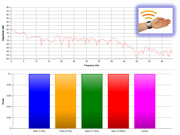
Feb
“Data Scientist in Residence”, “Chief Data Officer”, “Big data engineer”…the data science buzzword du jour is “Data Scientist.” These data scientists are part data analyst, part statistician and part software developer. With data quickly becoming a top strategic business priority for many companies, the need for data scientists will only increase – especially as we move toward an ever more data-driven world.
If data represents a strategic asset for your company, then you should be wondering if a data science team is needed and is it better to buy or rent the talent? Data analysis can be done by anyone with analytical skills, right? Well, the functions of a data scientist on a data science team are broader than initially meets the eye….and they typically need to work closely with data analysts and subject matter experts.
Data Scientists are in demand, and the salaries for US-based professionals can easily reach six-figure levels (about $120K + benefits according to Indeed). The number of data science jobs is expected to grow by 24% over the next five years. But do you really need a team of data scientists?
Duties & Responsibilities
The data science team doesn’t have the same structure that data analysts do – they are more fluid in that data scientists can operate at any level of the organization and perform specific functions depending on their skills. However, there are some basic responsibilities data scientists have:
- Data preparation is typically done by data scientists in conjunction with data analysts and data engineers. This involves data cleansing, data transformation, data aggregation and data modeling.
- Data science team members typically have relevant experience in big data technologies like Hadoop and they typically leverage these tools to perform data preparation.
- Data analysis is typically done by Data Analysts, although data science skills and knowledge can be used and are beneficial skills in analysts. This also means that they are familiar with the main concepts of data warehousing including ETL processes, data lakes and data marts.
- Data scientists may have to develop data products themselves – especially if they’re part of a product team. This can include data visualizations, data models and any other data products that might be needed in the organization. They can also work in software development when necessary – particularly for data engineering tasks like data ingestion, ETL and data infrastructure.
- Data scientists are also often involved with the creation of an organization’s data strategy. The Chief Data Officer or Chief Information Officer is likely to be involved. The CDO or CIO have to help define where data fits into the business objectives of an organization and how it should be leveraged. Data scientists also develop roadmaps for what levels of data maturity is needed in the organization.
- Data scientists can also be subject matter experts in data-related fields (e.g. finance, marketing, operations, etc.) that aid them in building a data strategy and data products for specific domains inside the company. They may also develop new tools and methods to acquire, process, analyze or present the data needed by an organization.
Data Science Team Benefits
This variety in skills is a big reason why data science teams are so popular among companies. Specialty roles can be filled by outside consultants to quickly fill a skills void with experienced talent. Filling in data and analytics fluency gaps with specialists on a temporary basis is less expensive than hiring employees in the short term. This also means that these Data Scientists are more effectively utilized as they’re not restricted to performing just one type of task. The downside is that over the long run “renting” data science skills is more more expensive than building in-house capabilities.
One of the biggest benefits of data science teams is their breadth and depth in data skills. They’re more capable than an analyst since they have other skills to fall back on like software development, domain expertise or data infrastructure. This makes them better equipped for solving data analysis problems compared to a smaller team with only analysts.
These are just some of the main responsibilities data scientists have on data science teams. There are other skills they can bring depending on their depth of experience and specific skillsets. For example the data science team can support organizational efforts related to strategy developing, analytics interpretation, technical product management and more. Having basic background knowledge about what a Data Scientist does in general will help you better understand your options when it comes to filling positions with a heavy data analysis component.
Tags: advanced analytics, AI, AI/ML, artificial intelligence, data science, predictive analytics






